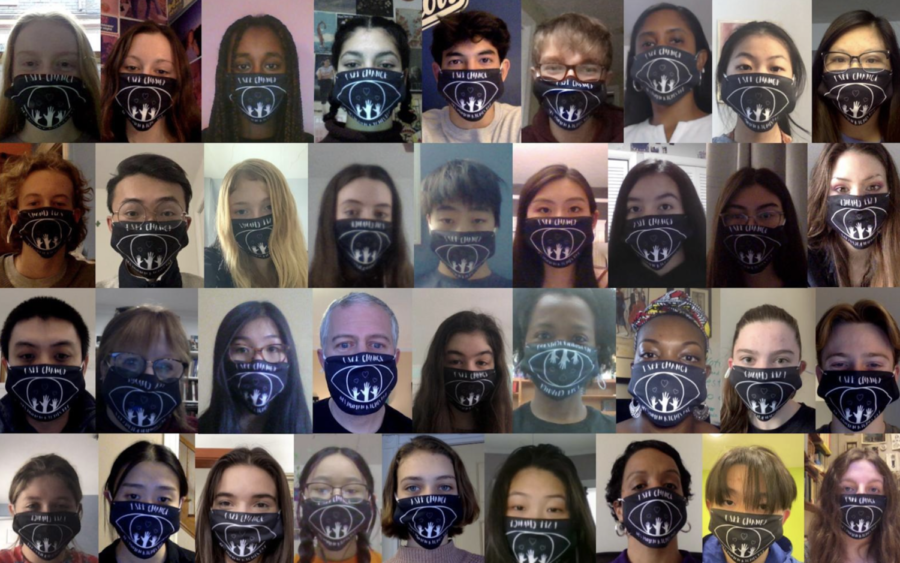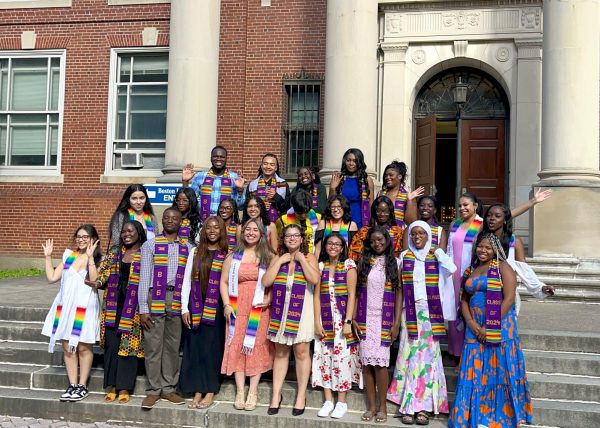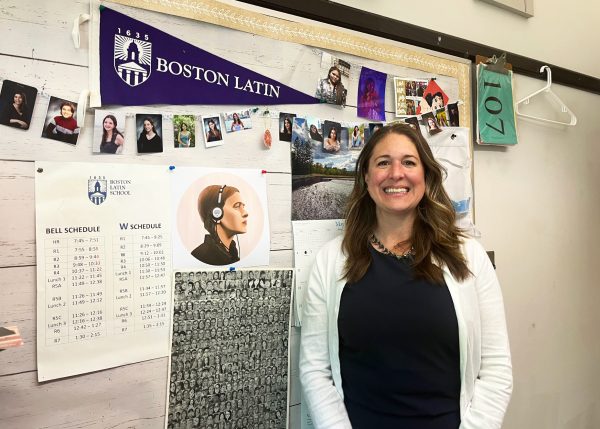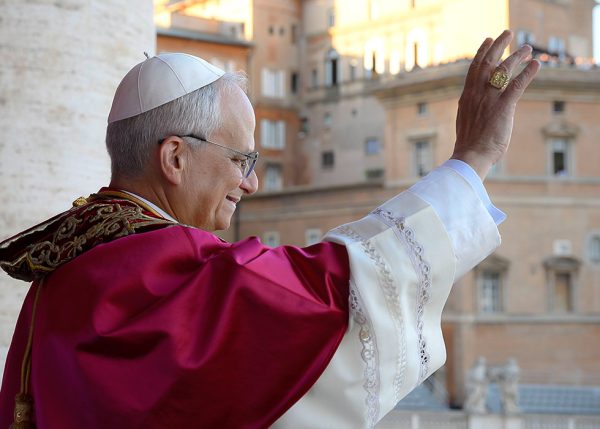Topol Fellows Host Virtual Human Rights Day
On February 8, the Boston Latin School Topol Fellows for Peace and Nonviolence hosted their first-ever virtual Human Rights Day.
The Topol Fellows are a small collection of seniors who spread awareness regarding human rights issues around the world. Traditionally, this effort has been showcased during their annual Human Rights Day event. Given this year’s remote circumstances, however, the group had to adapt to the challenges at hand.
This year, one major concern which arose during their brainstorming period was how they could replace the traditional orange shirts associated with Human Rights Day. Eventually, the Topol Fellows marketed a student-designed mask, reflecting the changes which the COVID-19 pandemic has had on the world, in lieu of the orange T-shirts. Such masks were available for purchase in the school community.
To preserve the tradition of highlighting human rights statistics on the orange shirts and announcing these numbers in front of the school auditorium, students and faculty who purchased a Human Rights Day mask were asked to create a short FlipGrid video in which they delivered a pre-assigned human rights fact. These short videos were subsequently compiled and shown at the beginning of each Human Rights Day session.
Another major dilemma that the group encountered throughout brainstorming was keeping attendees engaged throughout an online event.
Topol Fellow Ruth Shiferaw (I) states, “We all experience Zoom fatigue, and we didn’t really want that to happen again on such an important day. So we all tried to come up with ideas to engage people more […] We had a lot of Padlets, so people could communicate with each other because when you’re not in person, it’s hard to get a sense of that atmosphere and what people are feeling. I think we managed to find a way to
get people to communicate their feelings with each other in a virtual world.”
Each Human Rights Day presentation topic was chosen during the brainstorming period. After the subject matter had been determined, the Topol Fellows reached out to faculty and administration members to collaborate with for the presentation.
English 12 teacher Mx. Dana Amico was one of the faculty presenters. They state, “I have attended Human Rights Day any chance that I get. […] I was excited for the opportunity. I was immediately drawn to the topic decided by the Topol Fellows regarding protests and activism because I myself am very active in those spaces, and I also want to encourage everyone, especially students, to really use their voices for change.”
Mx. Amico’s presentation was entitled “Pride Protests: LGBTQIA+ Voices Past and Present.” Additional presentations included “The Water and Land is Our Body,” “COVID, Race, and Housing. How did we get here?,” “Anti-Asian Discrimination: Its Present and Past,” “Hate Groups in the United States,” “#BLM: The Modern Equality Movement” and “The Art of Protest.”
Although remote circumstances forced the Topol Fellows to adapt their annual tradition, one benefit of this year’s online platform was the lack of capacity constraints for each presentational session. Unlike the auditorium which is limited by its number of seats, this year’s virtual Human Rights Day was broadcasted on both Zoom and YouTube Live, allowing for a much greater audience than that of the regular Human Rights Day presentations.
Topol Fellow Zoe Nagasawa (I) reflects on the significance of this event, stating, “I think it’s important to be thinking about human rights issues and to stay aware that even though we’re just existing in our own bubbles, there is still a world happening out there. We still need to be aware of the people around us and to still try to help.”






